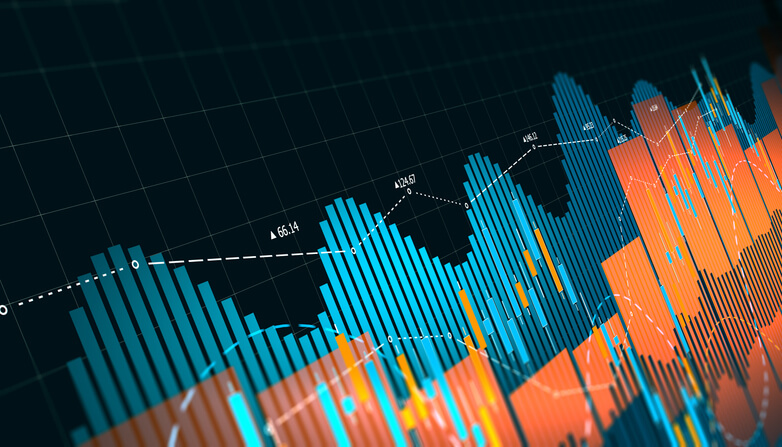
Data analysis courses and programs
As a rapidly evolving field, learning data analysis can create potential for upward growth and continuous learning. Find the right data analysis course for your professional goals on edX.

While technologies and tools will continue to change, the need for professionals who can understand and interpret data remains constant. Building skills in data analysis through a data analysis course can help you uncover insights, solve complex problems, and make more strategic decisions.
Whether you’re interested in starting a data analysis career or polishing your existing skills, edX can help you build a standout skillset. Learn about the benefits of enrolling in data analysis courses and programs — plus how to get started — in our guide.
Enroll in a data analysis course or program on edX today and gain the skills you need to help organizations gather insights from their data.
What is data analysis?
Data analysis is the process of collecting, organizing, and evaluating data to gain insights. Organizations interpret these insights to inform strategic decision-making.
Unorganized data, called unstructured data, doesn't offer much value on the surface. But structured data in a searchable database allows analysts to interpret information and make predictions based on trends, patterns, and anomalies.
Benefits of learning data analysis
- Transferable skills: Data analysis skills are valuable across industries. Data analysis and visualization are second only to AI skills with 23% of people ranking them as one of the most valuable skills for career advancement.
- Growing job opportunities: The Bureau of Labor Statistics (BLS) projects a 34% increase in data analytics and data science jobs from 2024-34.
- High-paying roles: According to BLS data, data scientists earned a median annual salary of $112,590 in May 2024, over twice the national average for all occupations.
- Career advancement: Data analysis is a field that offers many paths for advancement and development.
- Specialized career paths: You can add data analytics to your existing technical skillset and carve out a data-focused path in your current field.
Featured Data Analysis Courses
Browse online Data Analysis Certificates
Find new interests and advance your career opportunities
Stand out in your field
Use the knowledge and skills you have gained to drive impact at work and grow your career.
Learn at your own pace
On your computer, tablet or phone, online courses make learning flexible to fit your busy life.
Earn a valuable credential
Showcase your key skills and valuable knowledge.
Certificates
Related Topics
The difference between data analysis and data analytics
While the two terms are often used interchangeably, there are some distinctions:
- Data analysis refers to the methods used to organize (structure) and evaluate the data.
- Data analytics refers to the process of drawing conclusions from this structured data.
Data analysis is a fundamental step in the data analytics process. It involves using data tools like Excel, Python, and SQL, as well as statistical methodology to discover insights. Many people consider data analytics a form of storytelling, where data analysis is the process of uncovering the narrative.
Both data analysis and analytics require strong analytical skills, including data visualization, creativity, and communication.
How to get started in data analysis

How long does it take to learn data analysis
Data analysis requires experiential learning. As a result, it can take anywhere from six months to two years to become job-ready, depending on whether you have previous education and/or experience.
Most organizations require applicants to submit a portfolio of successful data analysis projects alongside their résumés, which can take some time to develop. If you're already working in a role, collect data to analyze in your everyday processes. Or, find volunteer opportunities where you can review data for portfolio projects.
Mastery of data analytics is a lifelong pursuit, especially as machine learning continues to transform analysis. Even people with over 10 years of full-time data analysis experience can find new ways to analyze data.
Careers that use data analysis
The BLS projects high levels of growth in the data analysis field. For example, market research analyst and financial analyst roles are projected to grow by by 7% and 6%, respectively, between 2024 and 2034.
Data scientist
Data scientists leverage analytical tools and techniques to derive insight from data sets. They select and structure relevant data, and they often create and update interpretive models and algorithms. Data scientists present their findings using data visualization software.
Median annual salary (2024): $112,590
Data scientist
Data scientists leverage analytical tools and techniques to derive insight from data sets. They select and structure relevant data, and they often create and update interpretive models and algorithms. Data scientists present their findings using data visualization software.
Median annual salary (2024): $112,590
Your next steps on edX
Develop the data analysis skills you need to thrive — find the best program for your career goals and advancement on edX. Sign up today and learn from industry experts and top schools.
- Learn foundational knowledge in online data analysis courses.
- Enroll in degree programs from top schools and institutions to help you qualify for higher-paying data analysis roles.
- Become a leader in the field and develop your professional skills with Executive Education courses for data analysts on edX.